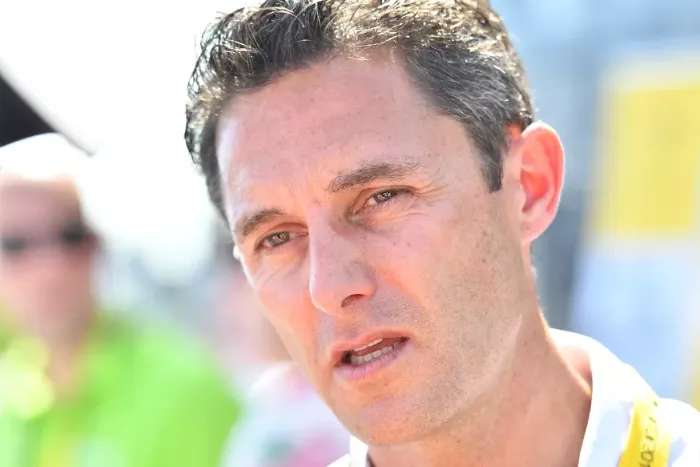Despite high-profile achievements like Biniam Girmay’s breakthrough Tour de France performance and the upcoming UCI Road World Championships in Rwanda, African representation in professional cycling remains stagnant. Doug Ryder, manager of the Q36.5 Pro Cycling team, has revealed that his team no longer fields any African riders, a first since 2007, saying, “It’s not about charity.”
Ryder, who founded the South African-registered MTN Energade Road Team in 2007, went on to develop MTN-Qhubeka, Dimension Data, and Qhubeka-NextHash, the first African team to compete in the Tour de France and win stages in the prestigious race. His new venture, Q36.5, a Swiss-registered team, was launched in 2023 with a continued focus on nurturing emerging African talent. However, by the end of 2024, the team released its sole African rider, Ethiopian Negasi Haylu Abreha, and disbanded its U23 continental squad, which had included two other African riders.
Kevin Campbell, the manager of Q36.5’s former continental team, highlighted the sharp decline in African presence in the professional peloton. In an October open letter on the Global Peloton substack, Campbell pointed out that the number of African riders in men’s professional cycling has dropped from 23 to just nine over the last decade. “African cycling has not arrived; it is leaving,” Campbell wrote.
This decline occurs against the backdrop of Africa’s highest-profile cycling success, with Biniam Girmay claiming three stages and the green jersey at this year’s Tour de France. Additionally, Rwanda will make history as the first African country to host the UCI Road World Championships in September.
During a media day for his team, Ryder was asked whether Q36.5 still considers itself “Africa’s team.” He acknowledged the team’s ongoing focus on African development, pointing to the charity work it continues to support through organizations like Qhubeka and the World Bicycle Relief Fund. Ryder also reflected on past milestones, including his team’s role in helping young riders like Girmay see the potential in cycling.
“We had a lot of African riders in our team. We opened the door for African cycling,” Ryder said. “Biniam Girmay was 13 when we took Daniel Teklehaimanot to the Tour de France. That race opened the door for him to see what cycling could offer.”
However, when pressed on why his team no longer includes African riders, Ryder bluntly stated: “There’s just a lack of quality at the moment, sadly. The sport has changed; it’s not about charity anymore. We’ve got big sponsors, and now it’s about business. It’s about points and rankings.”
Ryder noted that the conditions that once allowed African riders to flourish in his teams no longer exist. “If I started an African team today, would it be successful? No. Would people care? I don’t know. It’s about performance now.”
Traditionally, the strongest cycling talent from Africa has come from South Africa, Eritrea, and Ethiopia. However, the ongoing crisis in Ethiopia’s Tigray region, a key cycling hub, has raised concerns about the future of Ethiopian cycling. The two-year war in Tigray, which claimed over 600,000 lives, has devastated the sport’s infrastructure in the country.
Campbell’s open letter also emphasized the grim outlook for African riders. “We realized that cycling doesn’t care. It’s not about stories or photo opportunities anymore. The sport is about results. A rider has to perform,” he wrote. “The real question is, how are the next generation of African riders going to make it to Europe? All they need is an opportunity, but who is going to provide that?”
As the landscape of professional cycling continues to evolve, the challenges for African riders remain formidable. Despite moments of brilliance, like Girmay’s Tour de France triumph, the future of African cycling talent in the European professional ranks remains uncertain.
Related topics
- Rayner Foundation Announces 2025 Cyclist Cohort
- Remco Evenepoel Faces Setback in Recovery Due to Nerve Damage
- Vingegaard Focuses on Tour, Postpones Giro Double

